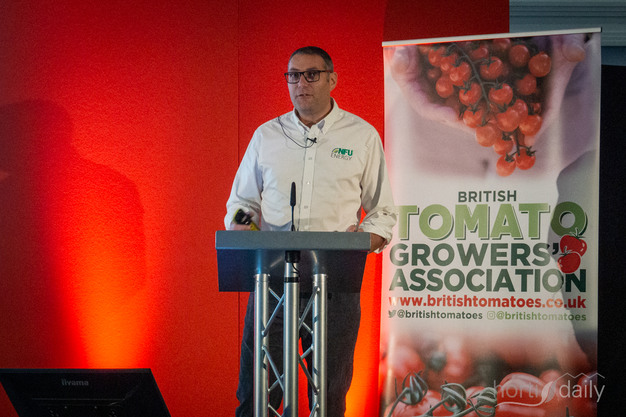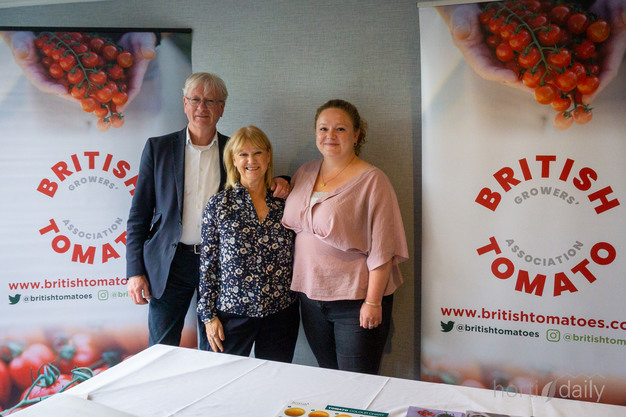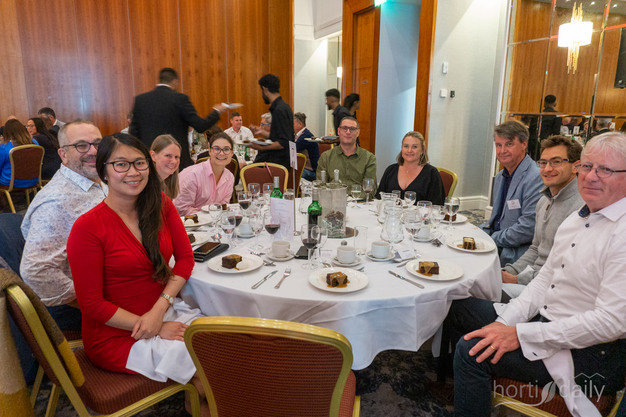Not a single tomato could be found at the British Tomato Conference, which took place yesterday in Warwickshire. There was no decorative British tomato flag, no new varieties shown by breeders, and even the lunch was completely tomato-free. This is exemplary of how the fear of the Rugose virus has changed the industry. And, as was shared during the conference, it's not the only challenge British tomato growers have had and continue to deal with.
The annual conference, organized on behalf of the British Tomato Growers Association, was back in full swing after the pandemic, which caused two cancellations and one smaller edition. Yesterday, over 220 growers, suppliers, policymakers, and other interested people gathered in Warwickshire to discuss the status and future of the industry. The event was combined with several suppliers presenting themselves at a small exposition.
Click here for the photo report.
With the Rugose virus remaining a hot topic, breeders, growers, and researchers provided an overview of the newest insights regarding the virus. But there's much more happening in the UK. Energy is and remains a major cost for UK growers, and while energy prices might seem to have stabilized, they are still much higher than they were before. Optimizing energy use or seeking alternative solutions is high on the agenda.

Brexit's results are also widely felt and continue to pose new challenges for growers. It has caused immense labor shortages - something Lee Abbey, who filled in for Minette Batters of NFU (National Farmers Union), hopes will improve as this year sees a higher number of visas provided via the Seasonal Worker Scheme - and is still creating new challenges. Border Control Points, for example, where all plants entering the UK are to be checked, including young vegetable plants, are causing delays until April 30th, and growers need to be aware of the changing situation.


Collaborative research has also changed in the UK with the disappearance of the ADHB (Agriculture and Horticulture Development Board) levy. Growers were updated on the new face of crop protection, which is now taken care of by Horticulture Crop Protection, an organization relying on voluntary support.
But it's not just about growing the tomatoes - they also have to be sold. Joseph Shaw-Roberts with Kantar shared trends and an update from the tomato market, and an overview of the British Tomato Fortnight was presented by the team at Jack & Grace Communications. The Fortnight will definitely continue but will not remain the same next year, as Julie Woolley, aka the Mother of the British Tomato Growers Association, is about to retire. Her efforts and support for the association and the industry as a whole were celebrated during the dinner concluding the conference - showing that despite the absence of tomatoes, the tomato vibe was certainly there.


Click here for the photo report.
For more information:
British Tomato Growers Association
tga@britishtomatoes.co.uk
